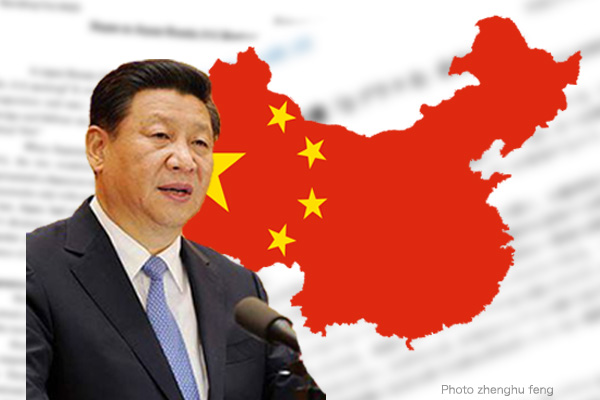Chinese President Xi Jinping has entered his third term as general secretary of the Chinese Communist Party. We must pay attention to his report to the Chinese Communist Party congress in October. The report made clear his pursuit of a powerful country that his regime has advocated in recent years in anticipation of a long-term U.S.-China confrontation. The key words in the report are “dual circulation,” “independence and self-reliance” and “national security.”
Obtaining core technologies from foreign companies
“Dual circulation” covers domestic circulation to promote strategic domestic production of key products including semiconductors and international circulation to use mutual economic dependence as a weapon against other countries. The enhancement of supply chains for key industries is positioned as a pillar of “national security.” Beijing is apparently preparing for Western economic sanctions in the event of a Taiwan contingency.
We should not overlook Xi’s emphasis in his report that China would “win the battle for fundamental core technologies” in order to realize “independence and self-reliance.” Behind the call is a sense of crisis that the absence of core technologies at Chinese companies has impeded domestic production of key products.
The problem is that China is trying to obtain core technologies from foreign companies. Their method is this: first, China invites foreign companies with technologies absent at Chinese companies to form joint ventures for domestic production. Then, systems are created for the foreign companies’ technologies to be transferred to their Chinese joint venture partners that subject only Chinese-brand products to domestic production. Using this method, China may target core technologies for key industries one after another.
Such Chinese intension and strategy have been notable, widespread and systematic for the past few years. The Chinese list up key industries such as semiconductors, electronic devices, new materials, machine tools, industrial robots, multifunction machines and sophisticated medical equipment and narrow down technologies for their acquisition. In all these industries, Japanese companies have the ability to compete.
Business decisions required for semiconductors
China’s main target is semiconductor technology. The U.S. Biden administration has come up with new restrictions on exports to China to prevent advanced semiconductors from being used for military purposes and urged its allies in Europe and Japan to come into line. China has spent massive money to rapidly improve its semiconductor self-sufficiency, but could be left generations behind Western countries in regard to advanced semiconductors by the export restrictions.
The U.S. restrictions target semiconductor production equipment as well and may be expanded to cover semiconductor materials in the future. In a bid to develop domestic semiconductor supply chains, China is encouraging Japanese companies strong in this field to launch production in China. Their top executives are required to make key decisions on how to deal with the Chinese market in consideration of China’s strategic bids.
Masahiko Hosokawa is a professor at Meisei University and a former director-general of the Trade Control Department at Japan’s Ministry of Economy, Trade and Industry. He is also a Planning Committee member at the Japan Institute for National Fundamentals.


